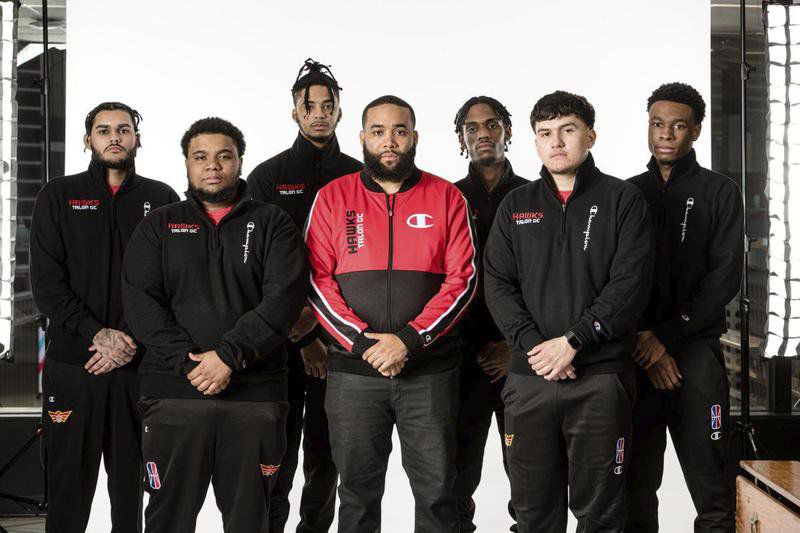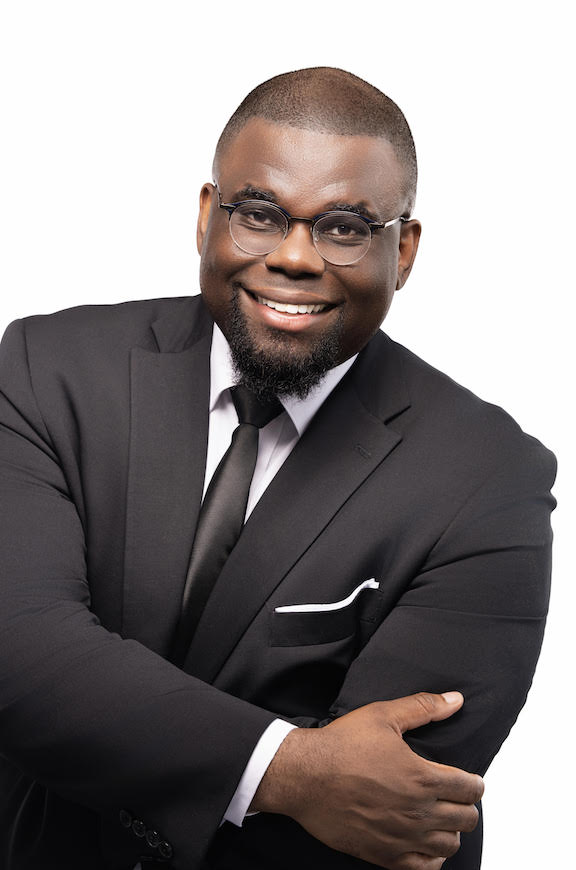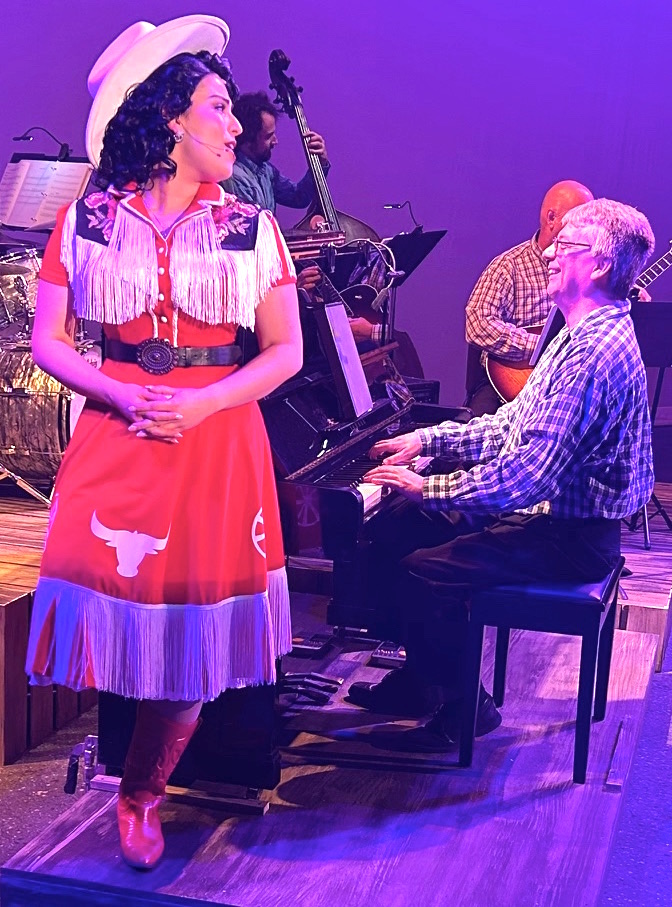Atlanta Hawks Talon Gaming Club jostles for position in NBA esports league
Published 3:15 pm Thursday, June 11, 2020

- Kyle Hess PhotographyThe 2020 Atlanta Hawks Talon Gaming Club. General manager and head coach Wesley Acuff stands center.
With thumbs blazing hot enough to burn through the virtual hardwoods, the six members of the Atlanta Hawks Talon Gaming Club are carving out a living in the blossoming world of esports.
“I never would have thought in my wildest dreams I’d be on ESPN,” Talon GC defensive specialist Kwan “followTHEGOD” Niblack Jr. said. “In a short amount of time we’ve already grown. I think we have a bright, bright future.”
Trending
In 2018, 17 NBA teams signed on to field a roster in an esports league managed by the association. It was the first organization of its kind in the U.S.
Top gamers from around the country in “NBA 2K” — a professional basketball-simulating video game — were drafted by the affiliated teams to compete for online bragging rights and a hefty chunk of change.
According to Green Man Gaming, as cited by Forbes, global esports revenue climbed from $162 million in 2013 to nearly $1.1 billion in 2019. The industry’s worldwide audience has increased by more than 250% in the same span to 443 million.
NBA executives took note, including Scott O’Neil, CEO of Harris Blitzer Sports & Entertainment, which owns the Philadelphia 76ers. O’Neil said he’s been in the esports business for the past four years, sharing knowledge between traditional sports and the budding online sector realized by the 76ers GC franchise.
“It’s kind of defined how I see the world going in team sports in terms of the business,” O’Neil said. “I have this strong conviction that the winners and losers will do this either really badly or really well, and that’s content and data. We’ve started to reorient our organization around those two things.”
O’Neil praised the ability of esports leagues, such as the “League of Legends” Championship Series to both analyze their competitors’ skills to a “Moneyball” level of precision and engage with audiences.
Trending
Interactivity could be the future of ball and stick athletics, but it’s a reality for esports. The NBA 2K league in particular lives and dies in the connected world of social media.
“That’s what esports has on us traditional sports,” O’Neil said. “They take more chances. They believe in the community.”
Hawks Talon GC
The Hawks joined the bandwagon last year, developing Talon GC under general manager and head coach Wesley Acuff. He initially sought out a job on the court in 2018 but wasn’t one of the 102 athletes selected in the inaugural draft. When Talon formed, he jumped at the opportunity to get in on the esports scramble.
It was his first time taking a head coaching job, but with some youth sports experience and a childhood watching his dad coach high school in Michigan, he settled into a job that involves building the team’s roster and developing both its in-game and social media strategies.
“There’s a lot of guys with a lot of experience [provided by the Hawks] that I’m able to sit down with and pick their brains,” Acuff said. “That combined with my father being a basketball-head all my life, it was second nature basically.”
Despite a 5-11 record that was one game better than the 18th ranked Knicks Gaming, Talon GC finished No. 19 of 21 competing teams in 2019, according to the NBA’s 2K league website.
The Los Angeles Lakers and Detroit Pistons affiliate clubs finished below Atlanta’s squad.
But through an offseason trade to acquire Michael “Bp” Diaz-Cruz, who averaged 19.3 points and 6.9 assists with Sacramento, California’s Kings Guard Gaming last year, Talon GC’s play has perked up.
“Bp has definitely grown as a player,” Niblack Jr. said. “People expected him to just be a ball hog. He’s not that, definitely, 100% not that. We’ve grown a lot as a team from when we first started playing for Talon.”
Boosting his points per game mark to 27.2 and sustaining his assists numbers, Diaz-Cruz has helped the club to a 3-2 start in 2020. The team is tied for 10th among the now-expanded 23-team field, although Talon GC has played two fewer league games than the majority of the league due to recent technical issues.
Adapting the game
While it would seem like esports is inherently built for COVID-19-related restrictions, the 2020 2K season has looked different than the league’s first two iterations.
Talon members would usually travel to New York City for every game and compete side-by-side, plugged in opposite their opponents.
With travel and gatherings severely limited in the wake of the pandemic, Niblack Jr., Diaz-Cruz and their four teammates compete remotely, a huge perk for a league that requires only a strong internet connection for players to play and fans to tune in.
“It affects the communication a little bit,” Acuff said. “We’re used to being in the same room, feeding off each other’s energy and communicating a little quicker, but we’ve adjusted.”
Headsets and chat room software like Discord keep Talon’s competitors on the same page during their best of three regular season matches with teams across the country.
Under remote play guidelines, Niblack Jr. and teammate Andrew “MrStylez_” Valle — both originally from Bronx, New York, — compete in separate rooms of their shared two-bedroom apartment in Atlanta.
As Acuff and his team look to break out among the 2K competition, Niblack Jr. feels like he’s already made it big. But even with a $33,000 base salary to play his favorite video game, he can’t take a break from marketing himself within the league’s niche community on social media.
For now, he’s enjoying the feeling of being a professional athlete.
“You finally hear your name called [at the 2020 draft] and it becomes a crazy experience,” Niblack Jr. said. “It’s just like ‘Wow, all the hours I’ve put in have finally come to fruition. I can’t wait to get here. I can’t wait to make my mark.’”
Printed with permission from The Red & Black independent student media organization based in Athens, Georgia; redandblack.com/sports





